Justin Trudeau, in-depth (updated April 28, May 7, 14, 30, June 4, July 5, 6, October 6, 16, 30, 2024)
Justin Ling's interview, his conversation with Paul Wells about it, and my response
This past week we have received a rare insight in Canada’s Prime Minister: His way of thinking and his delusions. Justin Ling had a one-hour conversation with him, as part of his research for a profile piece in The Walrus. Then Paul Wells and Ling had an insightful discussion about it that included some excerpts.
Source: The Walrus
+ The Walrus piece: https://thewalrus.ca/justin-trudeaus-last-stand/
+ Ling’s interview, audio and curated transcript:
(Note: The last 10 minutes or so of the tape are about the military and Ukraine and are not part of the transcript. Ling promises more around that topic later.)
+ Wells’ conversation with Ling, with a machine-produced transcript:
My response to this fresh information is on three levels: the specific matter of the electoral reform promise, and the deeper issue of trust in this, and any government.
Electoral reform. In this interview JT comes clean: When, in 2015, he repeated the promise hundreds of times — “this will be the last federal election under first-past-the-post” — he should have added, he says now, “and the next system will be ranked ballots.” He never was and never will be in favour of proportional representation. But he was advised to leave the door open a crack for PR, otherwise the proposal wouldn’t fly. Then when a special committee of MPs, having heard from many experts and the public, concluded that some form of PR would be best (even while disagreeing on the necessity of a referendum to confirm it), he shut the process down.
First, this confirms that, because of this omission, that promise was a lie. That is simply unforgivable, worse than making a broad promise that is re-interpreted as something else in the execution. There was no such nuance possible in this particular promise. I feel vindicated in having written off JT as a responsible politician ever since he broke it.
Second, it is hard to believe that JT is not aware of the experts’ conclusion (based on theory and experience) that ranked ballots to choose a representative assembly tend to favour a middle-of-the-road party because, for enough voters, that is their second choice. That would not be the NDP, not the current Conservatives and certainly not the Greens. Ranked ballots would be a formula for seeing the Liberals in power more often than ever. Therefore his firm stand against PR is grounded in partisan considerations. That too is unforgivable, even though admittedly it drives all parties in their response (for or against) to calls for a fairer voting system.
Trusting this government. The PM’s pattern in answering almost anything is, as Ling states in his Walrus piece, “acknowledge the problem, proclaim your values, talk about your successes, blame someone else.“ He could have added: “and saying we’re continuing to work on it.” Examples are found throughout the interview.
This government has accomplished much: the Child Care Benefit, CPP reform, putting a price on carbon for both industry and consumers, legalization of cannabis, an effective response to COVID-19, an at least partly effective if belated response to the housing crisis, and more.
Unfortunately, the list of failures is equally long: construction of the TMX pipeline and continuing subsidization of the oil and gas industry, still no safe drinking water in all First Nation communities, the electoral reform betrayal, the ballooning of the size of the public service as well as outside consulting contracts, the failure to reform the RCMP, the failure to draw lessons from the epidemic, the increasing stonewalling and secretiveness, and more.
How an alternative government would stack up on the pluses and minuses remains to be seen; at this point there are few promises to consider because the Conservatives have put in the window little more than their leader and his 3-word slogans, adopting a tone that is at least as annoying as JT’s, in a very different way. As per well-tested strategy, don’t expect much until shortly before the election; demonizing JT in the mean time works wonderfully to fire up supporters, raise money and create doubt about the merits of the incumbent.
Trusting any government. Ad hominem attacks on JT are stupid, insulting and beside the point. The deeper issue at all levels of government is the gap between words and action and the prevailing practice of covering the gap through disingenuous communication. A veritable army of communications folks has sprung up everywhere, from city hall to parliament. As Paul Wells wrote elsewhere, the job appeals to “the person who likes to focus on communications and political effects over real-world results. Or rather, the person who thinks communications and political effects are real-world results.”
But communication, while a critical component of the crisis in our democracy, is not the ultimate problem. What are the actual policies being pursued? Whose interests are they serving? Are they the best the country can muster? That dynamic stands a chance to be optimized only provided that we live under fair rules of governance. First-past-the-post makes majority rule with less than 40% of the popular vote possible and is a blatantly unfair rule. It inevitably leads to decisions that do not sufficiently reflect what the country needs because too many voices are absent from the table. Let’s try again, with a Citizens’ Assembly, sigh.
A December 2022 EKOS poll shows 76% of Canadians—including a strong majority of supporters of all parties—back a National Citizens’ Assembly on Electoral Reform.
90% say that Parliament should reflect how people voted. 78% think that majority governments should have at least 50% of the popular vote. Canadians firmly oppose any single party alone changing the electoral system to suit their preferences. Read the full results here.
Update - April 28, 2024
It looks like that interview Justin Ling managed was a precursor to a broader strategy by the PM. A CP story by the G&M’s Stephanie Taylor tells of appearances on four podcasts aimed at reaching young people:
https://globalnews.ca/news/10455757/justin-trudeau-podcast-federal-election/
(Bizarrely, in the G&M itself, this article is put behind its paywall!)
Update - May 7, 2024
A nice complement to these podcasts is Mike Gallaway’s conversation with Paul Wells on The Current about the latter’s 100-page essay for Sutherland House’s, Justin Trudeau on the Ropes, published today:
Transcript:
https://www.cbc.ca/radio/thecurrent/tuesday-may-7-2024-full-transcript-1.7197718
Or somewhere past the halfway mark for the audio:
https://www.cbc.ca/listen/live-radio/1-63-the-current/clip/16063720-israel-rejects-ceasefire-paul-wells-trudeaus-toughest-fight
Update - May 14, 2024
Andrew Coyne proposes a dare to Trudeau: Make the next election one of defence of the Charter. Poilievre says he’ll use the notwithstanding clause; provincial governments increasingly do so or threaten to do so.
https://www.theglobeandmail.com/opinion/article-an-election-about-the-charter-what-does-the-pm-have-to-lose/ [paywall]
We know what Mr. Poilievre will do. The question is: what will Mr. Trudeau? Does he want his legacy to be the dismantling of his father’s greatest achievement?
Or will he use the time he has left to carry the fight to Mr. Poilievre and the premiers – culminating in an election about the Charter? Maybe he’ll still lose. But how does he want to go: with a bang or a whimper?
…
After preparing the ground with a resolution in the House never to use the clause, legislation:
…committing the federal government to use the power of disallowance against its use by the provinces. Or against any pre-emptive use, that is in the absence of any actual inclement court ruling. … Precisely where to draw the line in defence of the Charter can be debated. But the hour is late. An election about the Charter may or may not save the Prime Minister’s government. But it would do much to rescue his reputation.
Update — May 30, 2024
Venerable Michael Harris in The Tyee ruminates about the two recent books about Trudeau: Stephen Maher’s full-length biography, and Paul Well’s 98-page essay — and lists Pierre Polièvre’s vulnerabilities.
https://thetyee.ca/Analysis/2024/05/30/What-Tempts-Trudeau-Stay-Ring/
Includes results of a Nanos poll for the Globe & Mail about how the two leaders are seen: Remarkably similar!
Update — June 4, 2024
Crawford Kilian in The Tyee also reviews Wells’ book but has nothing new to say. The illustration, however, is priceless:
JT at the weigh-in for his boxing match with Senator Patrick Brazeau, March 2012.
Update - July 5
Sublime cartoon in today’s Globe and Mail:
Update - July 6
They just keep on coming.
Update - October 6 (revised October 30)
Liberal MP Nate Erskine-Smith had PM Justin Trudeau on his Uncommons podcast on October 1 (58 min). Yesterday, 6 1/2 minutes of it that dealt with the electoral reform debacle was posted on Erskine-Smith’s Facebook page. (An October 3 Toronto Star article is behind a paywall. See also a 15-minute video, with excerpts from the interview, on David Doel’s The Rational National, October 7.)
JT reiterated why he left the door open for proportional representation (his mistake no. 1, he says) but then expanded on his very strongly felt reasons to oppose PR. It would change allegiance of an MP from one to a particular community to the Party and that would be very bad for Canada.
What nonsense. In the link below Fair Vote Canada once and for all exposes the fallacies in Mr. Trudeau’s arguments, including his notion of party vs. community allegiance.
His mistake no. 2? Not bulldozing ranked ballots through when he had a majority. He didn‘t do it because electoral reform really ought to proceed by consensus. But so here we are, and in the next election a win with 30-40% of the vote will, regretfully, again be possible.
The PM conveniently neglects to admit that ranked ballots by their nature favour a middle-of-the-road party like, say, the Liberal Party of Canada.
A fact-checking page from Fair Vote Canada is here. To me the core is this:
It is not believable that the Prime Minister made these statements because he does not know the very basics of how proportional representation for Canada could work.
The only reason he would have used misleading or discredited opponent talking points is to manufacture a contrast between his straw man PR system and his preferred winner-take-all ranked ballot system…
Go here for a thorough June 27, 2017 description by Althia Raj, Ottawa Bureau Chief of the HuffPost Canada, of how the treachery came down.
Update - October 16
Paul Wells’ exit interview with Mark Garneau (41m) is especially remarkable because, in response to a pointed question about “when the bloom went off the rose” of that new Liberal government in 2015, Garneau’s first response was “Christmas with the Agha Kan” and his second was the broken promise of electoral reform, which he continued to discuss at length (starting at about the 20m mark).
Waiting nine years for JT to be "honest" with people (as Garneau wishes everyone would always be) and confess that he fibbed back then (first in the interview with Justin Ling in April, and two weeks ago with Nate Erskine-Smith), by pretending that proportional representation was an option, that's more than bloom-gone, it is the poison that is now doing this government in.
(For the record, Garneau stated that, like Trudeau, he believes that ranked ballots are the answer.)

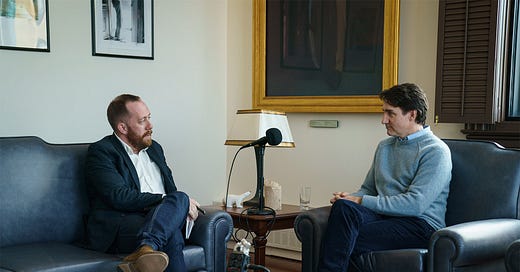




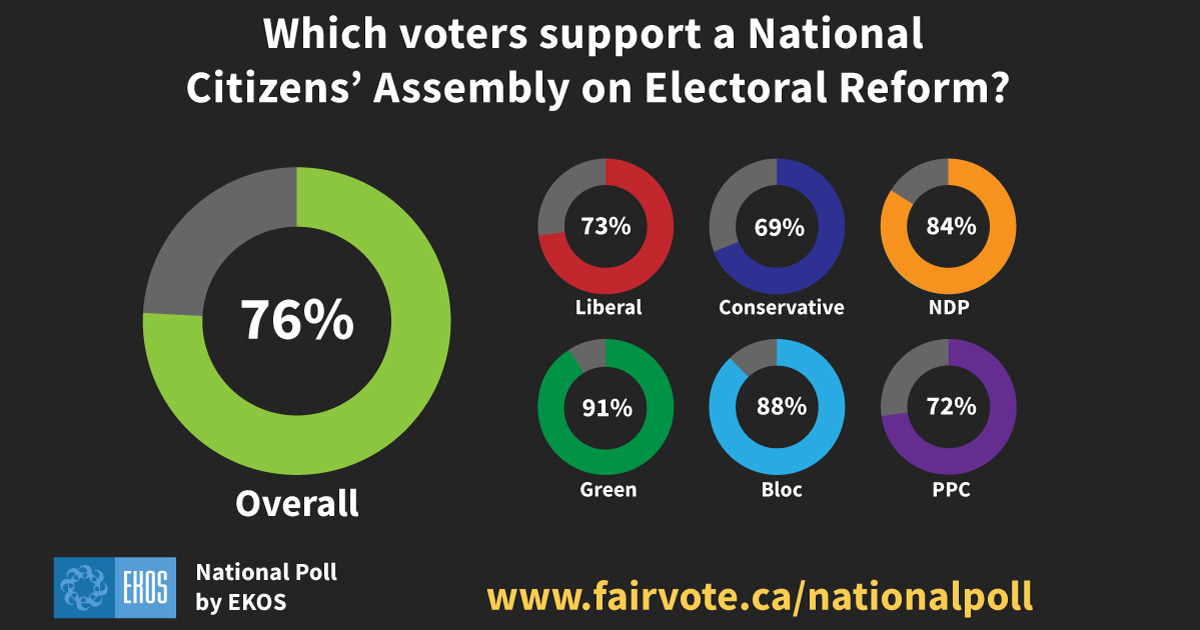
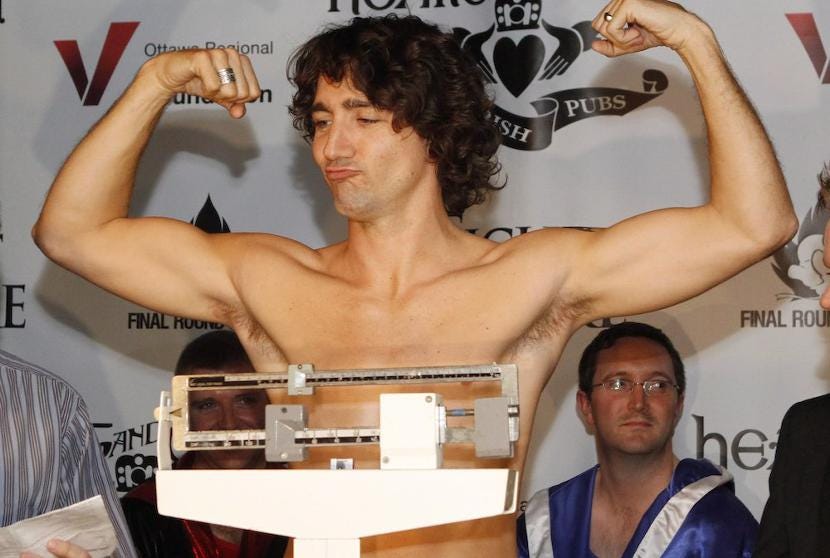
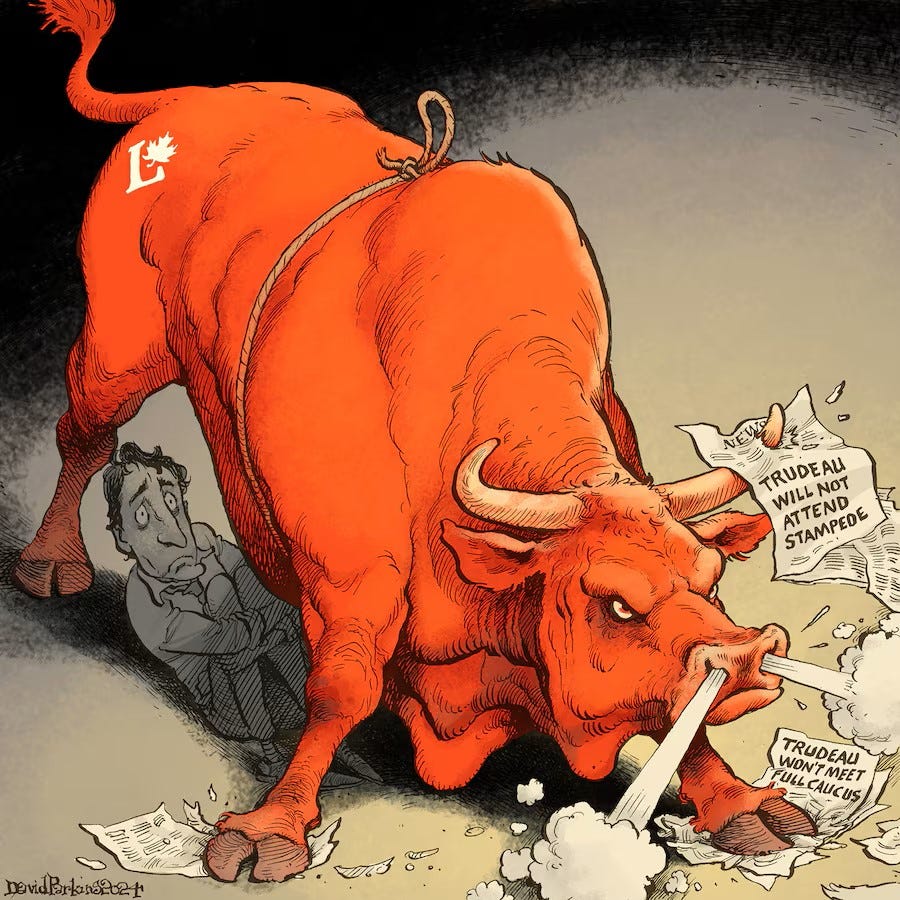
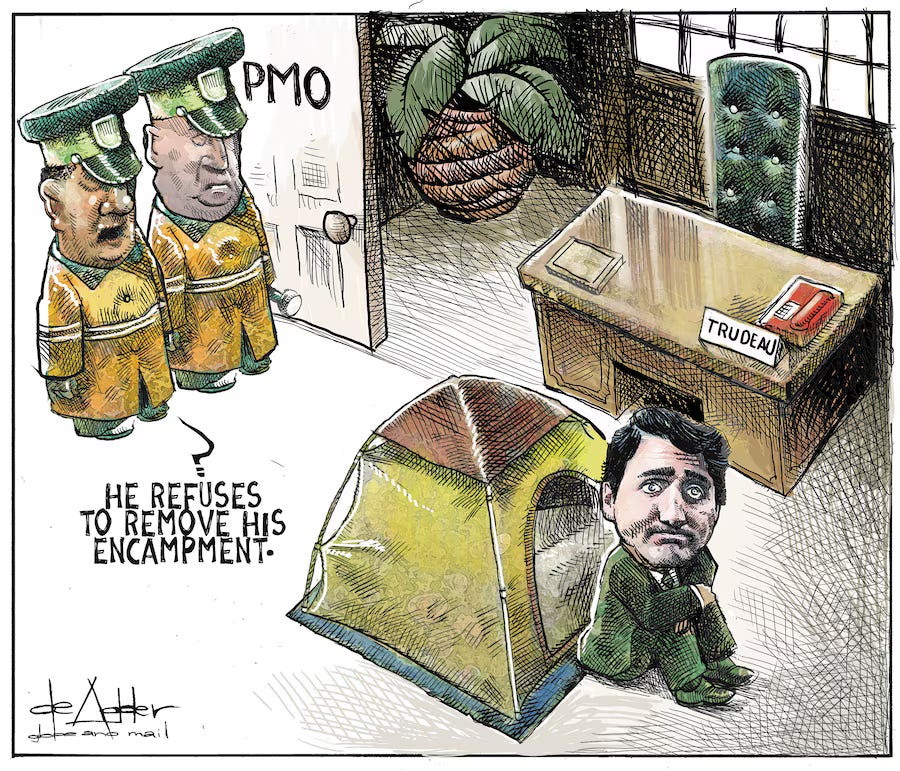
Erwin has done us another service by putting together the source pieces on JT, and providing his own thoughtful commentary. Fairness in governance with a fair voting system (i.e proportional representation) is indeed a key policy goal, something that could be lifted to the level of a "core "value worth fighting for.